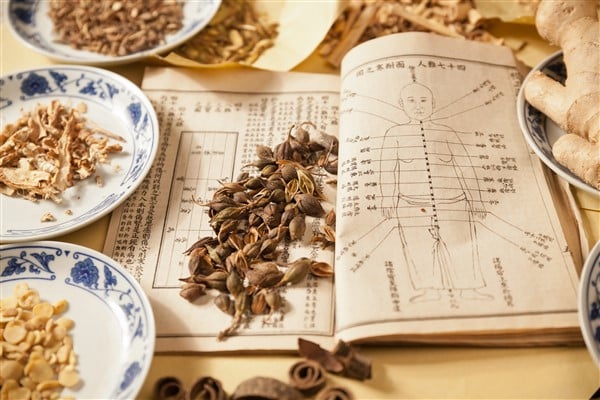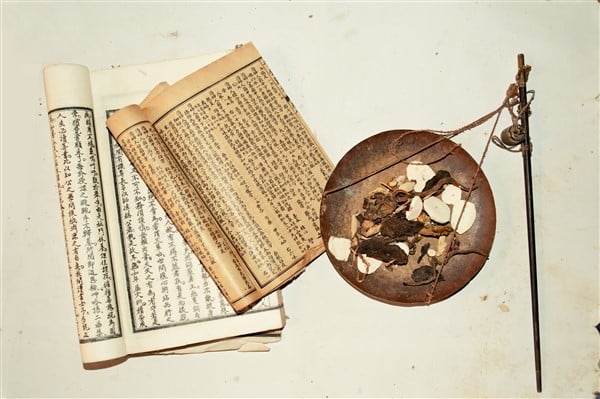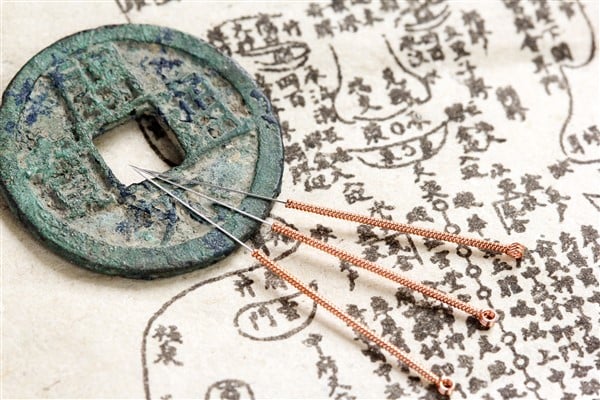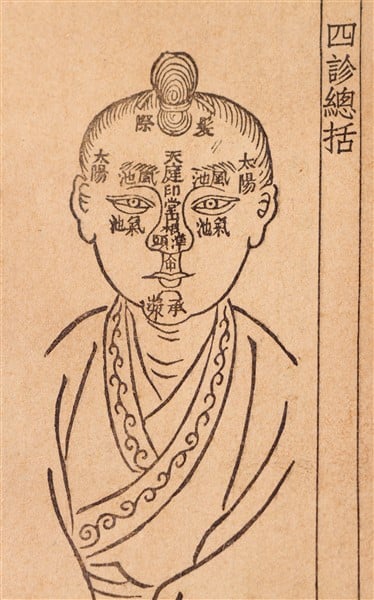7 Common Questions about Chinese Medicine, Answered
What is Traditional Chinese Medicine?

Traditional Chinese Medicine is a medical system that began being developed in China about 5000 years ago, which makes it the oldest continuous medical system on the planet. It has a long history which has given it time to amass a huge body of knowledge on a variety of subjects.
The name traditional Chinese medicine is deceptive, as its focus is not on medicine per say, it teaches a way of life, or “the Tao”, which has its roots in Taoist philosophy. Living in harmony with one’s natural environment with the aim of keeping all aspects of a person - mind, body and spirit - in a state of harmony and balance so that disease never has a chance to develop, is the ultimate goal. This balance and healthy lifestyle are the focus of Chinese Medicine which empowers the individual to participate in his own health. Chinese Medicine also has many tools that can be used when that delicate balance is lost and illness results. They include acupuncture and Chinese herbs as well as a dietary therapy and internal practices like tai chi and qi gong.
For more information about Chinese Medicine please read - What is Traditional Chinese Medicine - An Introduction
The History of Chinese Medicine
The first record of acupuncture was written by Huang Di (the yellow emperor) in the Huang Di Nei Jing which is 4700 years old and considered to be the oldest medical textbook in existence. The initial theories in Chinese medicine came from observations of nature, and humans inseparable link to it. Chinese medicine is a holistic system, meaning that human beings are seen to exist within a system that includes the natural world, the planet and the universe. Health is considered to be achieved when there is a balance in the entire organism and all of its facets; the physical body, the mind and the spirit.
Ancient Chinese peoples lived agrarian lives that ebbed and flowed with the changing of the seasons, and they lived in harmony with the natural world. They changed their habits according to what they observed in the nature that surrounded them, eating foods that grew locally and flourished in the present season, as well as changing behaviours like sleep and exercise to stay in harmony with their environment. It was this attunement to nature that ruled the lives of ancient peoples and helped them to stay healthy in all aspects of their lives.
The Benefits of Chinese Medicine

I have been very privileged to see the benefits of Chinese medicine first hand in my patients. Many times, a person comes to have acupuncture after they have tried everything else - as a bit of a last resort. These are usually people who do not know a lot about Chinese medicine, but had heard about it from a friend and had decided to try it as they had nothing else to lose. They have come because nothing else had helped them. In so many of these cases, the problems that people came in with were resolved relatively easily and I will tell you why. Chinese medicine works differently than Western medicine in that you are not treating the disease, you are treating the person. Let me explain.
In Chinese medicine, regardless of the diagnosis you are coming in with, we do a thorough intake and take a complete medical history. We look at the tongue (an important diagnostic tool in Chinese Medicine) and take the pulse on both wrists. We ask many questions and listen to the patient describe their ailment. We are gathering a lot of information about you because we are not just looking at the part or parts that might be experiencing the problem, we are looking at the entire picture.
Let me give you an example:
A patient comes in with migraines. Their Western doctor has diagnosed them with migraine headaches which they have been suffering with for years. No treatment has helped and the patient has come to you as they are hoping you might be able to help when nothing else has.
After a thorough intake, medical history and chat, the practitioner discovers that there are some emotional issues that are likely the cause of the migraines. After digging deeper, the patient describes some trauma that they had experienced in their youth and never acknowledged. They cry as they describe it, as this is literally the first time they have spoken about it since it happened. After a handful of acupuncture sessions and some exercises to learn how to deal with grief and trauma, the patient no longer experiences migraines.
Chinese medicine understands that healing, as well as illness can happen on many levels and for many reasons. It is the job of the Chinese medicine practitioner to discover the root of the problem (where it has come from) and use all the tools in the Chinese medicine tool box to correct them as well as educating the patient to help them avoid creating the scenario that led to the illness in the first place. This part is very important.
If you would like to read more about the benefits of Chinese Medicine you can read this article.
Is Chinese Medicine Effective?
Yes.
For those who do not know much about Chinese Medicine, it may seem strange. Sticking needles into a person to promote healing? Taking smelly herbs to help soothe my stomach or sleep better? How does that even work? And this is a very good question.
To someone who grew up in a society that is accustomed to Western medicine, Chinese medicine and its theories seem strange and perhaps somewhat magical. In a culture that worships science, there isn’t a lot of room for concepts like Qi, or explanations that cannot be proven or seen under the microscope. And there are certainly a lot of people out there who disbelieve that Chinese medicine has any effect at all and think it is all a hoax, which is ok too. But for the millions, dare I say billions of people on this planet who use Chinese medicine and know first hand of its healing effects, I imagine that they would say that it absolutely is effective because they have experienced it, time and time again.
As a practitioner, I have had the pleasure of seeing this happen with more patients than I can count. And, for the uninitiated, it is often a bit of a surprise. They can see and feel that it is working, but it is the HOW that they can’t quite figure out.
How Does Chinese Medicine Work?

Explaining how Chinese medicine works is a complicated endeavour, and is the reason that practitioners spend many, many years in school learning its theories and practice. In a nutshell, the body, and indeed a human being is not seen as a machine, living in isolation from the world around it. Human beings are seen as a part of the whole of things, which includes our environments, nature and the universe itself. When illness occurs, we do not only look at what is happening with the physical body, we must look at ALL aspects of a person to determine where the problem is before it can be corrected.
The other important part is that as practitioners, we are not the ones doing the healing. At least this is not the way I have ever looked at it. As a practitioner, I am able to facilitate the healing by giving the body what it needs to do so. Chinese medicine understands that the body has an innate intelligence, and that, if it is given what it needs, can and will heal itself. It is the job of the practitioner of Chinese medicine to find out what it is that the body, mind or spirit is not getting, and help teach the patient what is happening, and how they might go about giving it to themselves. We are using our tools, like acupuncture and herbs, to support that process to bring the body back to health.
To learn more about how Chinese Medicine works, you can read this article about The Causes of Disease in Chinese Medicine.
The Difference Between Chinese Medicine & Western Medicine
There is a basic fundamental difference between Chinese Medicine and Allopathic, or Western medicine and it has to do with the way each system views health, and especially, the body. I like to use a metaphor from a wonderful book - Between Heaven and Earth - that compares the body to a garden. A garden must be tended for it to flourish and grow. A person must go out into their garden every day to see which plants need more water, which ones are suffering with pests and which ones need a little more sun. In this way, small changes are made so that the garden can thrive, and everything is kept in a sort of balance. Chinese Medicine sees the body as a garden.
Western medicine sees the body like a machine. It reduces it to parts that break and must be repaired or replaced. It is a reductionist view. If there is a problem with one part of this machine - let’s say it is the liver - then it is the liver that gets the focus and is seen to need “fixing”. The other difference is that Western medicine is a disease system, meaning that the focus is on disease rather than health. If you would like to learn more about the difference between Chinese and Western medicine in more detail then please read - Traditional Chinese Medicine - A Medicine of Prevention
How Do You Study Chinese Medicine?

There are now many schools that offer programs in Chinese medicine covering modalities like acupuncture and Chinese herbal medicine, and some allowing you to specialize in a specific modality like acupuncture. The certificates, diplomas and degrees offered as well as the prerequisites required to get into such programs differ by country, state and province. There are also schools that specialize in specific theories in Chinese Medicine, like the 5 elements, so doing your research is important to make sure you are choosing the school that is right for you and is aimed at the parts of Chinese medicine (or the whole of it) that you are most interested in learning.
If you are looking into studying Chinese medicine, my suggestion is to research some schools that you like and go and visit them. Spend a day there sitting in classes and talking with students. This, in my opinion, is the best way to see if you really like a school and if it resonates with you.
In conclusion, Chinese Medicine has a long, rich history that evolved and developed over thousands of years. Since China’s opening up in the 1970’s, it has exploded into the West and now Chinese Medicine is practiced all over the world and helping many more people. There is still a lot of misinformation about Chinese Medicine, but the best way to find out about it, is to try it yourself and have your own experience. The fact that Chinese Medicine is still being practiced today and is just as effective at treating modern diseases is a testament to its validity, its efficacy and its enormous wisdom.
If you are interested in learning more about Chinese Medicine, please visit Emma Suttie’s website - Chinese Medicine Living. She writes about how to live a healthy lifestyle in the modern world according to the principles of Chinese Medicine. You can sign up for her monthly newsletter on the site as well to receive the newest articles and information.
You may also like: